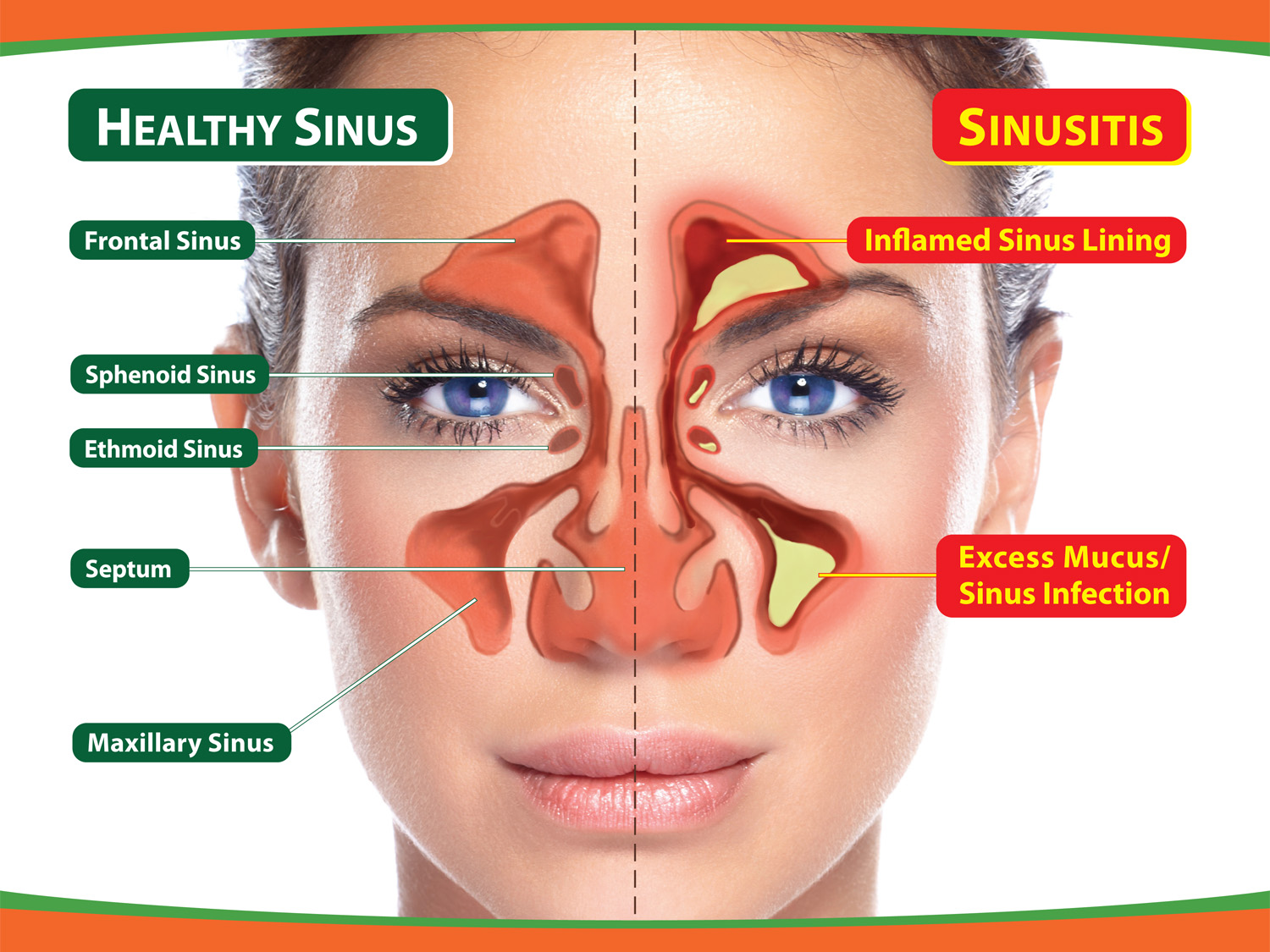Published by The International Forum of Allergy & Rhinology – 08/14/2014 Clinical Article
Researchers conducted a study to determine whether endoscopic sinus surgery (ESS) for chronic rhinosinusitis (CRS) results in appreciable sleep quality improvements in patients with CRS.
Chronic Rhinosinusitis or Chronic Sinusitis is a condition that interferes with drainage and causes mucus to build up in the sinus cavity and typically lasts over eight weeks. The sinuses are air filled cavities that surround the nose and nasal passages. If these passages become inflamed, fluid can build up and interfere with the drainage of mucous in the sinuses. This condition is called sinusitis. Treatment for sinusitis ranges from antibiotics to a neti pot, depending on the cause. If sinusitis is left untreated, it can lead to more serious infections and become a chronic condition. If symptoms last longer than two weeks, it is important to speak with a doctor, because you may be suffering from chronic sinusitis. Otolaryngologists also know as, ENT doctors recommend tests and treatments to diagnose and address the underlying causes of acute and chronic sinusitis. Chronic sinusitis may be caused by an infection, but it can also be caused by growths in the sinuses (nasal polyps) or by a deviated nasal septum.
Chronic and acute sinusitis have similar signs and symptoms, but acute sinusitis is a temporary infection of the sinuses often associated with a cold.
At least two of the following signs and symptoms must be present for a diagnosis of chronic sinusitis:
- Drainage of a thick, yellow or greenish discharge from the nose or down the back of the throat
- Nasal obstruction or congestion, causing difficulty breathing through your nose
- Pain, tenderness and swelling around your eyes, cheeks, nose or forehead
- Reduced sense of smell and taste
Other signs and symptoms can include:
- Ear pain
- Aching in your upper jaw and teeth
- Cough, which may be worse at night
- Sore throat
- Bad breath (halitosis)
- Fatigue or irritability
- Nausea
For patients suffering with chronic sinusitis, it becomes very difficult to breath due to the obstruction in the airway. This new study concluded that among patients with CRS, reduced sleep quality, poor disease–specific quality of life, and greater disease severity were improved following Endoscopic Sinus Surgery. Treating the sinusitis with surgery, not only improved patients overall health but also their sleep quality.
When should I see a doctor?
- You’ve had sinusitis a number of times, and the condition fails to respond to treatment
- You have sinusitis symptoms that last more than seven days
- Your symptoms don’t improve after you see your doctor
What are the common causes of chronic sinusitis?
- Nasal polyps – Tissue growths may block the nasal passages/sinuses.
- Allergic reactions – Allergic triggers include fungal infection of the sinuses.
- Deviated nasal septum – A crooked septum — the wall between the nostrils — may restrict or block sinus passages.
- Allergies (i.e.: hay fever) – Inflammation that occurs with allergies may block your sinuses.
- Respiratory tract infections – Infections in your respiratory tract — most commonly, colds — can inflame and thicken your sinus membranes, block mucus drainage and create conditions ripe for growth of bacteria. These infections can be viral, bacterial or fungal in nature.
- Immune system cells and related diseases – With certain health conditions, immune cells can cause sinus inflammation that may result in nasal blockage.
- Trauma to the face – A fractured or broken facial bone may cause obstruction of the sinus passages.
What is the treatment for chronic sinusitis or Endoscopic Sinus Surgery (ESS)?
For those patients who are chronic or recurrent sinus sufferers, doctors may suggest Endoscopic Sinus Surgery, or ESS. The goal of ESS, is to expand the sinus drainage pathways to help restore drainage and heal the sinus mucosa.
How does Endoscopic Sinus Surgery work?
A doctor uses an endoscope, inserted through the nostrils, to view the passageways and sinus openings, then a series of micro-cutting instruments are used to remove obstructive or abnormal tissue. This tissue removal expands the openings to the sinuses and the pathways through which sinuses drain, helping clear sinuses and promote healing.
What are the clinical benefits of Endoscopic Sinus Surgery?
In multiple studies, patients who receive functional endoscopic sinus surgery show a statistically significant improvement in symptoms and quality of life following surgery.
This recent investigation demonstrated that approximately 75% of patients with medically refractory CRS report abnormal sleep quality with a strong correlation between worse sleep quality and more severe CRS disease severity. Poor sleep quality can have a negative effect on many aspects of your life, from your health to your relationships. Sleep is good for your heart because when you are not getting enough sleep, your blood pressure and cholesterol levels rise, making you susceptible to heart conditions. Sleep also boosts memory, reduces stress, is restorative and helps the body heal from infection.
How is the recovery from Endoscopic Sinus Surgery?
Recovery times for ESS vary, based on the extent of the procedure. Many people return to normal activities within one to two weeks following surgery.
What is the sleep significance of this recent finding?
This latest study expands the benefits of ESS into improvement of sleep quality, which amplifies the overall benefits of ESS and may also contribute to improved overall health and wellness.
For more answers to your sleep or sinus questions, visit www.eossleep.com or make an appointment today at 212-873-6036.

